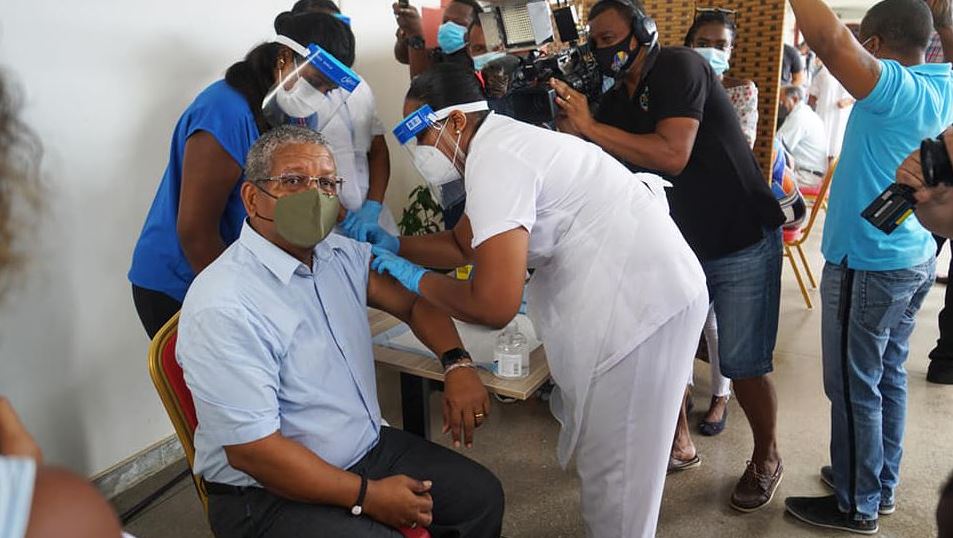
By AP

Seychelles began vaccinations in January, and by the end of February, about 44% of those vaccinated had gotten a second shot.
“We are hoping to achieve herd immunity mid-March when we would have vaccinated 70,000 of our people,” Seychelles President Wavel Ramkalawan told The Associated Press in an interview last week. “That represents 70% because our population is 100,000.”
Ramkalawan now says he hopes enough residents will soon be vaccinated against COVID-19 to stop the spread of the virus in the Indian Ocean island nation.
So-called herd immunity is reached when enough people are protected through infection or vaccination to make it difficult for a virus to continue to spread. The exact threshold for coronavirus is unknown, although some experts suggest that at least 70% of a population would need to be protected to hold the virus in check. The emergence of new worrisome versions of the coronavirus, however, is further complicating the picture.
Since the pandemic began, Seychelles has had 2,592 confirmed cases of COVID-19, including 11 deaths, according to the Africa Centers for Disease Control and Prevention.
Seychelles’ first two positive cases of COVID-19 were confirmed on March 14, 2020. The two individuals were a couple from Seychelles who had returned from a trip to Italy.
The country imposed a nationwide lockdown in which most shops, businesses, and schools were closed for 21 days in April. The airport was also closed and ships were prevented from bringing tourists.
Restrictions continue on public gatherings, restaurants, and bars. Tourists flying to Seychelles are required to have recent negative PCR tests and have a 7-day quarantine period at a designated hotel and have a negative PCR test at the end of the restriction.
The 7-day rolling average of daily new cases in Seychelles has dropped over the past two weeks, going from 49 new cases per 100,000 people on Feb. 15 to 32 new cases per 100,000 people on March 1, according to figures from Johns Hopkins University.
Seychelles’ vaccination drive started in January with 50,000 doses of Sinopharm vaccine donated by the United Arab Emirates, a close trading partner, according to the Seychelles News Agency. The Emirati carrier, Etihad Airways, has a substantial stake in Air Seychelles.